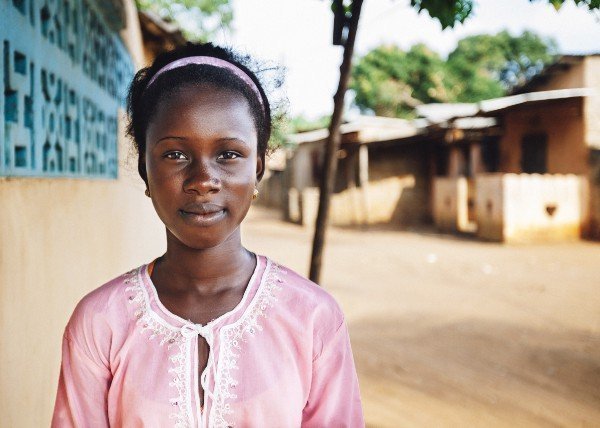To achieve gender equality, it will take a village
Story

 By Sarah Pentlow
By Sarah Pentlow
Global Lead for Gender Equality and Social Inclusion
Cuso International
It is said that it takes a village to raise a child. But did you know that it also takes a village to shift social norms and break structures of inequality that have held back generations of women? As March 8 rolls around again and the global community takes a moment to acknowledge International Women’s Day, let me put the invitation out there to stop for a moment and survey the village. There is a moment happening — whether it is in response to politics, pop culture or people who are tired of their daily personal struggles, we have finally begun to reach a critical mass, and as Times magazine articulated last November, the structures are beginning to explode.
However, if norm shifting was just that easy as stacking the boardroom we might have achieved gender equality by now, so why are we still having these conversations? It’s 2018 after all. Critical mass theory aside, I think we are still having these conversations because until the whole village is on board — the elders, the parents, the religious leaders, the business owners, the educators, the children and the institutions, we will not see change. Inequalities are increasing and despite resolutions at the UN or national strategy documents to advance gender equality, basic violations of women’s rights are happening on a large and largely unreported scale. Like in northern Benin where in certain ethnic groups as many as 70% of young women still experience genital cutting. This issue of female genital mutilation/cutting (FGM/C) encapsulates in a graphic way the struggle of the feminist movement: power, patriarchy, bodily autonomy and confronting violence. To respond to these challenges, Cuso International is launching a new three-year project with the support of Global Affairs Canada.
I believe the four principles we are using to end FGM/C provide a blueprint for larger scale change and our engagement with the villages in Benin represents more broadly how we need to engage with the rest of the world:
1. Affirm women’s leadership to oppose gender based violence — Gender based violence is one of the major impediments to equality as it permeates the lived experiences of women around the world. This goes beyond sexual assault and workplace harassment to include harmful cultural practices, early and forced child marriage, verbal abuse, cyber bullying to the more hidden forms of economic violence and the emotional and mental stresses that come from living with a fear of violence. Without women’s active participation in political spaces to ensure these issues are put at the forefront and measures taken to address these, the cycles of violence will continue.
2. Mobilize community leaders — Community-led initiatives are essential and that is why Cuso International partners with local organizations to implement our projects. In countries all over the world, grassroots, community-based organizations are leading the movement calling for greater equality and standing up to forces that threaten. These organizations and leaders require financial and human support to carry on their work.
3. Collaborate with respective governments and authorities — Although there is a feeling among some activists to distance themselves from government, at the end of the day — power is embedded within these very institutions. These systems hold the village together and must be transformed to become a force for good. It is encouraging that there are frameworks in place such as Canada’s Feminist International Assistance policy however policy by itself is not enough — it must translate into practice.
4. Adopt diverse and complementary strategies — If one cannot be convinced that gender equality is important from a human rights perspective, then maybe looking at it with a health or a social services lens or from a budgetary savings measure will convince. However, beliefs about gender are so deeply embedded within our cultural worldviews that sometimes more than logic is needed to shift these values. That is where artists, poets and other sources of spiritual inspiration need space to do their thing. Our project in Benin will engage local media, theatre and religious leaders as part of the strategy to change the narrative.
Bringing it back to a personal level, we must also think about the power and privilege in our own lives and the organizations we represent and ask, even if the government wasn’t requiring it, would we still struggle for equality? Can you see yourself in the stories of injustice constantly reported by the media? Maybe you are the bystander in the corner; maybe you are on the jury; maybe you don’t think the story applies to you, but you are there. Finding your place in the village is the first part, like fastening the seatbelt at the start of a long road trip. So, buckle up because it’s going to take a village and it’s time to get on board for the ride of our lives.